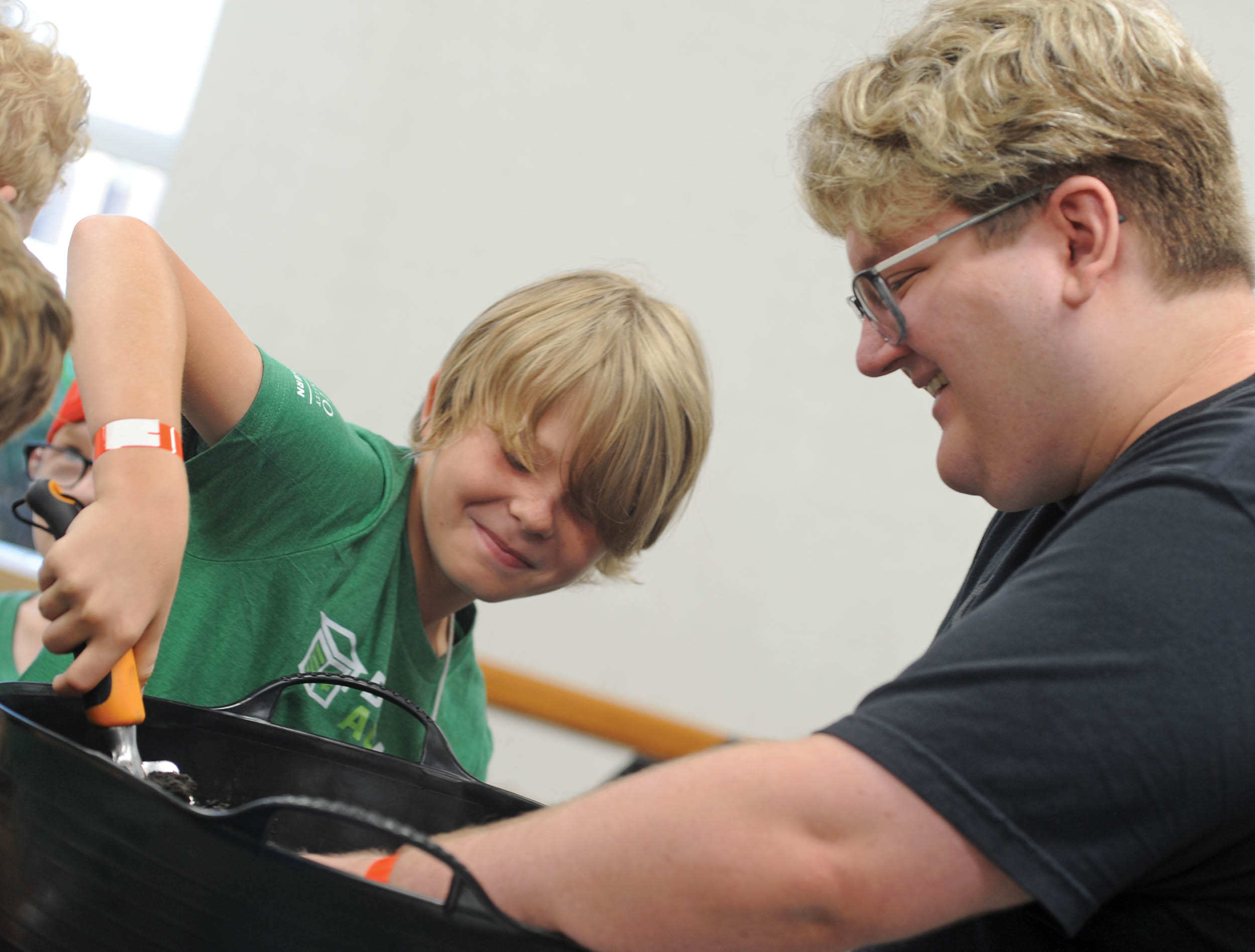Veterans must not be forgotten
Published 10:12 am Tuesday, November 8, 2016
Carroll Hosbrook, a farm boy from Ohio, found himself in a small French village on Nov. 11, 1918. Bells in a bombed-out church were still intact, ringing out the good news of the Armistice having been signed—on the 11th hour of the 11th day of the 11th month.
On this historic day, my Uncle Carroll was writing home, part of a series of letters that chronicled his service from boot camp to battlefield. He had a wry sense of humor, an eye for girls, and a strong sense of duty to family and country.
Camp Sherman, Chillicothe, Ohio — May 6, 1918. Dear Grandma, Well, I fired the machine gun for the first time this morning. It made my ears ring as if someone had hit me.
Then I got my second inoculation shot; it was a bigger shot but has not made me sick (yet). You said sister Harriet had the headache. Let her come up here and take some of the stuff I got to take, and it could cure her headaches.
I haven’t got a girl up here, so get a real petty one down there to write me. That shot in my back has started to work on my knees—they feel like they are going to fall off. But don’t worry about me. I will take care of myself. Carroll Hosbrook, 324th Machine Gun Battalion.
England, June 27, 1918 — Dear Grandma, I arrived over here safe and sure had a wonderful trip. Don’t worry a bit about me because Uncle Sam will take care of me. The weather is very cool, and I’d like to have a sleeveless sweater as soon as possible. I will fight a lot harder for you if I am warm. Ha, ha. I remain as ever, your grandson, Carroll.
Trending
Somewhere in France, July 17, 1918 — Dear Aunt, We are billeted in an old house on the outskirts of a nice French village. We saw some churches and other buildings 300 years old. No doubt, they have a great history, but I am not over here to study history. As I was writing this letter, two aeroplanes went over where we are stationed. They were allies but I couldn’t make out the nationality. Gee, I like to hear their engine hum—it’s music to me. Tell Grandma not to worry. I am coming back to all. Goodbye, Carroll.
France, Sept. 19, 1918 — Dear Grandma, I am in a British field hospital. My sickness is the diarrhea. The sicker boys have beds, and the ones that ain’t so sick sleep on stretchers.
There are nine Tommies (British soldiers) in this tent with me, and they are trying to sell me some of Jerry’s stuff, so I have a hard time writing. The Jerries are what you would call the Huns. The boys bring in stuff from the front they get off the dead and from prisoners.
I just looked at a nice leather belt with “Gott Mitt Uns” on the buckle. This means “God is with us.” Do you think God is with them? I remain as ever, Sammie Grandson.
France, Oct. 29, 1918 — Dear Grandma, Our roof got damaged in the fighting. It does all right when the weather is fair and is too wet to work on when it rains. I just learned that Austria has given in to President Wilson’s peace terms. Next will be the Huns.
They are whipped but too stubborn to give up. I see lots of them, and most look like they are fed up to the neck with war. Listen, Grandma, don’t worry anymore about that sweater since I got one issued to me. My pipe went out so I will close for now. Pvt. Carroll Hosbrook.
Somewhere over here, Nov. 11, 1918 — Dear Grandma, This has been some day. We got news this morning that the Huns had given up and signed the armistice. There is a big church here which is partly destroyed, but it has a bell still intact, and it has been ringing since noon.
The Yanks sure gave the Huns a good hot chase. I guess they will think twice before they start out to take the world again. I’ll soon be walking in your door on a nice clear day and can then tell you what I have seen of this great war. I never thought that one’s part would be such a small part.
But I found out that it is true when you say you are going to do your bit—it is a little bit. You will read something very great about us in history. We are wanted to take part in a big parade in England because we have been fighting with their boys. Good night. I remain as ever, Pvt. Carroll Hosbrook.
With censorship ended, my uncle’s later letters traced out his service in France —from landing at Le Mans, a first German raid at Etaples, “marching through the mud in pursuit of the Huns” from Doingt to St. Souplet and then going into action at La Sabliere Woods.
Carroll’s Armistice Day letter of Nov. 11, 1918, was written in the French village of Corbie, just a few miles from where the armistice was signed in a railroad car in Compiégne.
Uncle Carroll returned home, found his own “pretty girl” and settled down. After the war, he never cared much for marching, machine guns, or doctor’s needles. By historical standards, he was not a great man — but he was a good man, one of the many men and women whom we honor on Veterans Day so that they and their service will never be forgotten.
James F. Burns is a professor emeritus at the University of Florida.





